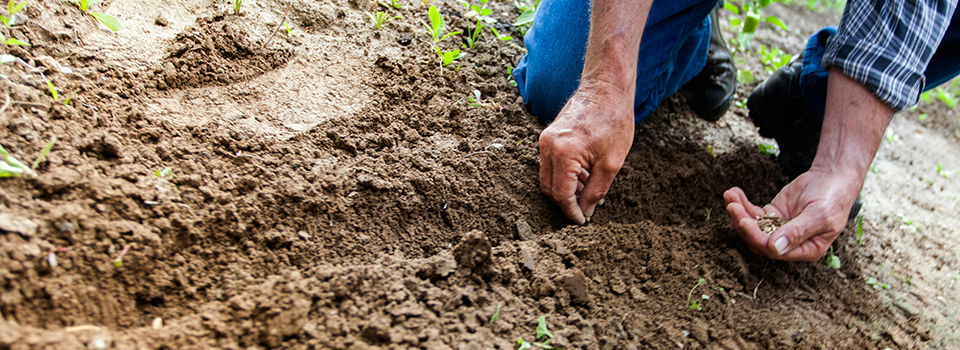
K-State horticulture expert Cynthia Domenghini said peas can sprout in soil that is 40 degrees Fahrenheit, while lettuce can germinate in 35 F.
Soil temperature is important for germination in the garden
Home gardeners can take their own soil temperature measurements, says K-State expert
At a glance: Different plants require different soil temperatures to germinate, says K-State horticulture expert Cynthia Domenghini.
More information: Cynthia Domenghini, Cdom@ksu.edu
Related: K-State Horticulture Newsletter, | Kansas Mesonet (Soil Temperature)
Feb. 29, 2024
By Maddy Rohr, K-State Research and Extension news service
MANHATTAN, Kan. – Just in case home gardeners have not really considered the importance of soil temperature, Kansas State University horticulture expert Cynthia Domenghini says you should. Soil temperature, she says, affects germination of many garden foods.
Domenghini said peas can sprout in soil that is 40 degrees Fahrenheit, while lettuce can germinate in 35 F.
“Crops -- such as tomatoes, corn and other warm-season veggies -- need the soil to be at least 55 F for success,” Domenghini said. “Peppers, cucumbers and melons need even warmer soil.”
The Kansas Mesonet is a resource for guidance on what’s happening below the ground. Domenghini said gardeners can also take their own soil temperature measurements using a soil thermometer, and measuring the soil at least 2.5 inches deep during late morning.
“Find the average soil temperature over five days to determine when the time is right for planting,” Domenghini said. “It is still important to watch the forecast for late season frosts and freezes.”
Domenghini and her colleagues in K-State's Department of Horticulture and Natural Resources produce a weekly Horticulture Newsletter with tips for maintaining home landscapes and gardens. The newsletter is available to view online or can be delivered by email each week.
Interested persons can also send their garden and yard-related questions to Domenghini at cdom@ksu.edu, or contact your local K-State Research and Extension office.
***

K‑State Research and Extension is a short name for the Kansas State University Agricultural Experiment Station and Cooperative Extension Service, a program designed to generate and distribute useful knowledge for the well‑being of Kansans. Supported by county, state, federal and private funds, the program has county extension offices, experiment fields, area extension offices and regional research centers statewide. Its headquarters is on the K‑State campus in Manhattan. For more information, visit www.ksre.ksu.edu. K-State Research and Extension is an equal opportunity provider and employer.